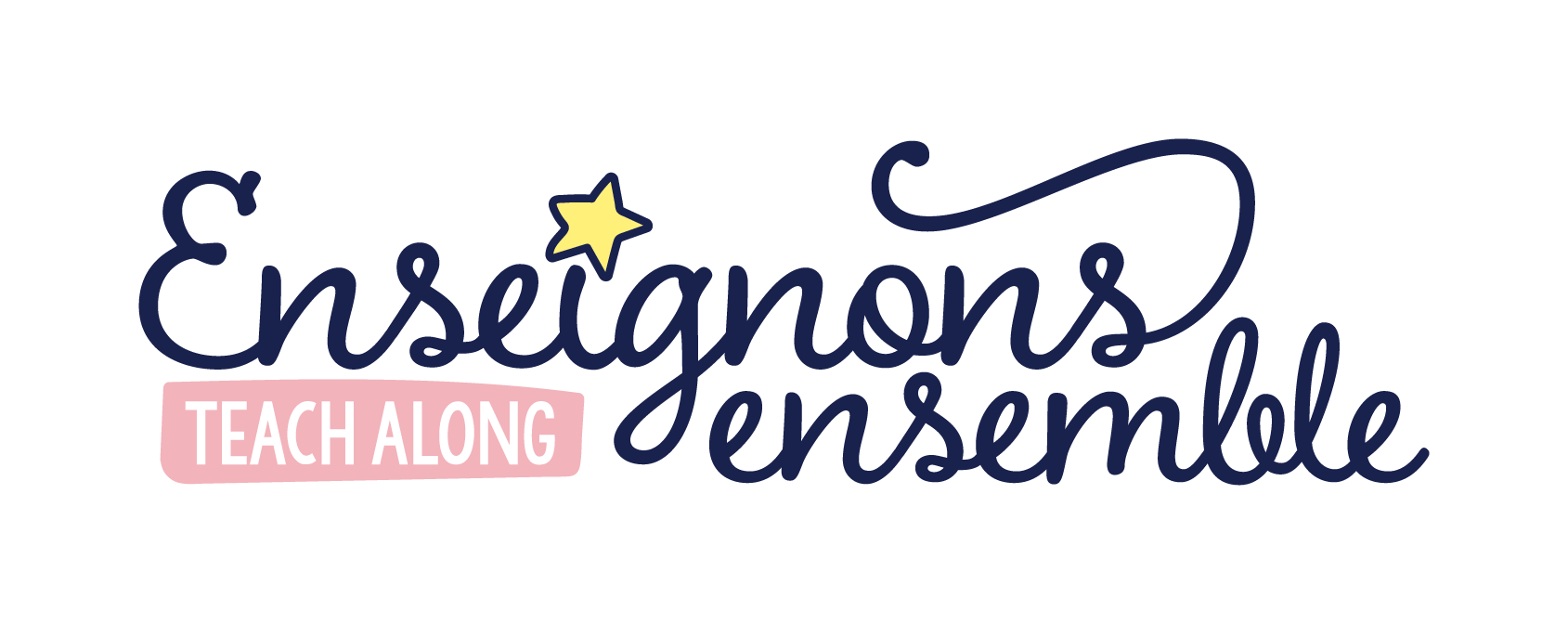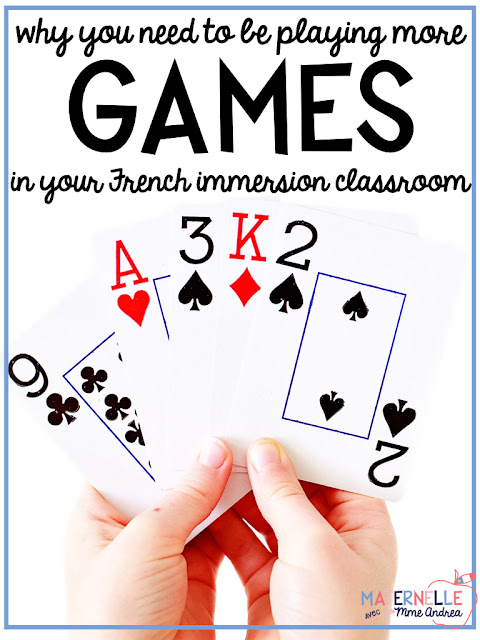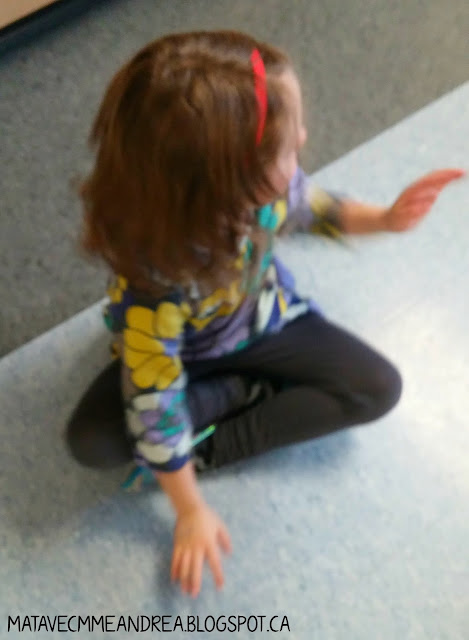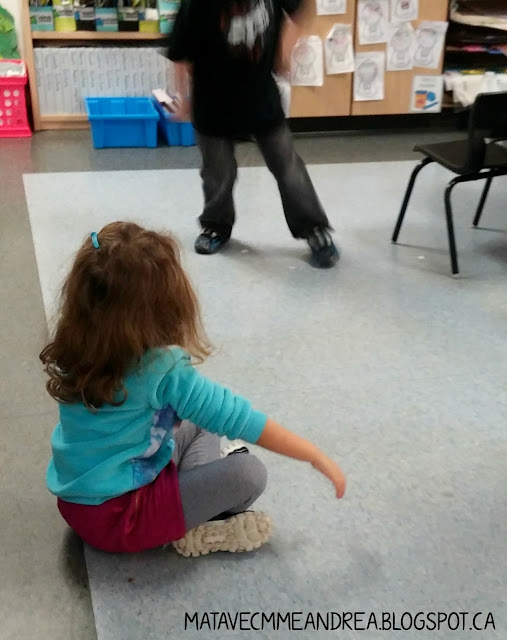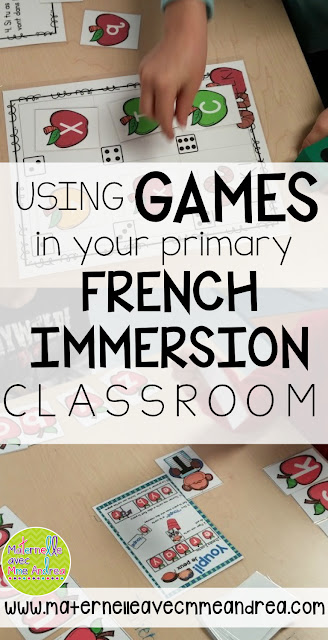Hi!
Anyone else out there who doesn’t understand how it can possibly be the end of April?! I am currently recovering from an appendectomy/extra bonus surgery for a surprise post-surgery internal bleed, and won’t actually even be back at work until the first of May. MAY! Two months left for me to fill my little munchkins’ brains with as much as I possibly can! #cuepanicattack
This time of year is so bittersweet. Not quite the end, but so very close. I am never ready for my students to move on to grade one (Heck, last year I even followed some of them to grade one and taught them twice! And believe me, I’ve thought about doing it again next year haha). I spend all year getting them to this fabulous point where they basically run the show themselves and I can spend all my time actually TEACHING, rather than explaining routines and procedures, reminding them of my expectations, etc. etc. And then I have to send them on their way. I may be a bit biased, but I really think that Kindergarten is special…no other grade levels quite understand just how far these kids come from their very first day of school EVER. I know that by the end of June, I will be beyond exhausted and ready for the break, but I am not quite there yet, and the fact that it will be MAY in a week and a bit is really freaking me out!
Anyways. I didn’t mean to go off on that tangent. This blog post today is not about the bittersweet moments of teaching – it is about using games in your primary classroom.
There is a lot of research to support the use of games and play with young students. I am sure that you are well aware that children learn through play, and that play is central to who they are and should be encouraged as much as possible. The younger the students, the more they should be playing. We all know that! However, we also have a lot of pressure to get these kids to perform academically…and we are maybe even sometimes expected to get them to do things that they aren’t really developmentally ready for. So, if your students don’t get as much time to play as you know they should, don’t beat yourself up – we are all trying to find that balance! One way that I try and find that balance is by teaching my students to play games that have academic content and review important skills as well.
(Just in case you aren’t actually yet sold on the idea that children should be playing at school, here are a few reasons why games are great in the classroom. Games are fun, they are engaging, and they allow students to reduce their stress in their learning environment. According to Marcia Tate, author of Worksheets Don’t Grow Dendrites, the less stress a student is feeling, the more memory is freed up to remember and absorb what they are supposed to be learning. Games are also easy to differentiate – just change out the materials depending on a group’s abilities and needs. Playing games gives students a fabulous opportunity to learn things from their peers, as well – and we all know that kids learn very well – good things and bad! – from other kids!)
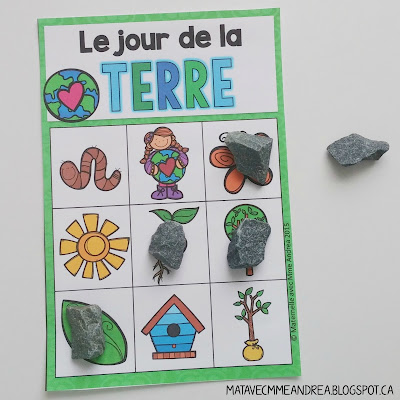 |
| We love playing Bingo to practice vocabulary! This is our Earth Day bingo |
In my classroom, we play a variety of games every day. Most are built into our routine and my students know to expect them. Some are spontaneous and we play them when we have a few extra minutes here and there. Most, my students play with a partner (a peer), and they are responsible for knowing the rules and playing correctly. Some games we play whole group, and some games we play in small groups with me to facilitate. Sometimes everyone is playing the same game at the same time (usually during math), and sometimes one group is playing one game while their peers are doing something else (usually during centres/small group time). Most of our classroom games I have created myself, but we also play games that I have purchased from places like Scholastic, Learning Resources, etc.
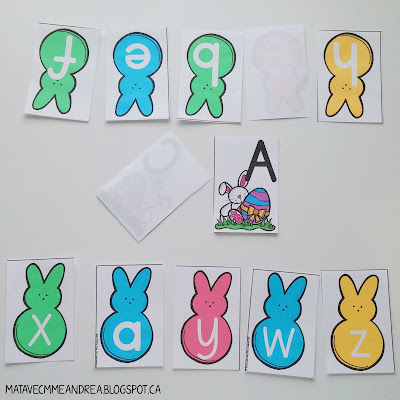 |
| Easter Youpi! All set up |
One way to help ensure your students can successfully and independently play games in your classroom is to use predictable game structures. This means that you teach them how to play a game once (or twice haha #reallife), and they can then use their knowledge to play that game all year long. Three games that we play a lot of in my classroom that are predictable I call EEK!, Roule & couvre, and Youpi! Every single one of my students knows how to play all three of those games. During centre time, there is always one option of each game available in the Games centre. Now, obviously, if I had the EXACT same game in the centre bucket all year long, no one would want to play it…boring! But, guess what? Switch up the theme, and your kids think they are playing a whole new game – a whole new game that they already know how to play ;) My students get to feel successful and independent every day – they know how to play with their partner, and they don’t need me to remind them. They love the cute themes that match events and holidays that are happening in their lives. Each time I have a “new” game prepped for them, we review how to play it during our mini lesson before that centre. That way, everyone can get excited to watch out for the shark, or the bear, or the leprechaun… and it provides them with a reminder of how to play correctly and what my expectations are. Pro tip – I also model for my students how to be a graceful winner and a graceful loser. Each time! It is so important to model and practice frequently throughout the year, or else your little munchkins may “forget” your expectations.
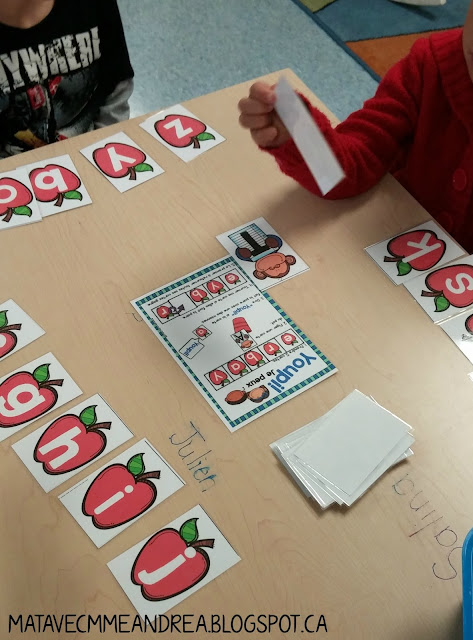 |
| School Youpi!…you can see that it is the same procedure as the Easter one |
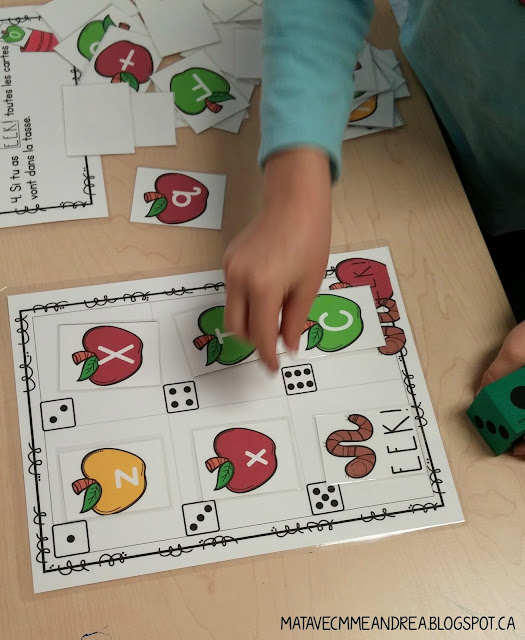 |
| Playing EEK!…our favourite! Watch our for the worm!!! |
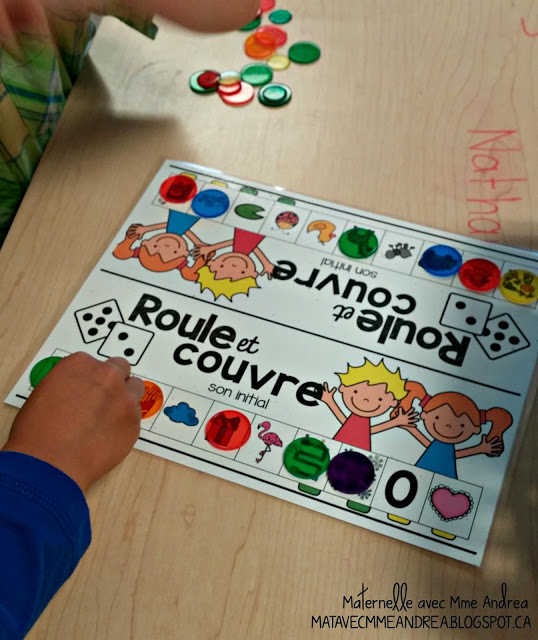 |
| Roule et couvre – we have a whole bunch of different game boards for this one |
We also play a math game in my classroom every single day. I teach using a workshop model, so we do a mini lesson, where I teach them the skill we are learning and model how to use a game to practice. Then, my students break off into partners and play the game I just showed them together. I circulate and listen to my students using math talk, and guide them in the right direction if needed. These games change almost every day – the most we would play the exact same game would be 2-3 days in a row. Since I am modelling for them how to play the game each time, and I am circulating around the room while they work (not working with a small group), these games don’t need to be as consistent and predictable as the games I use during centre time.
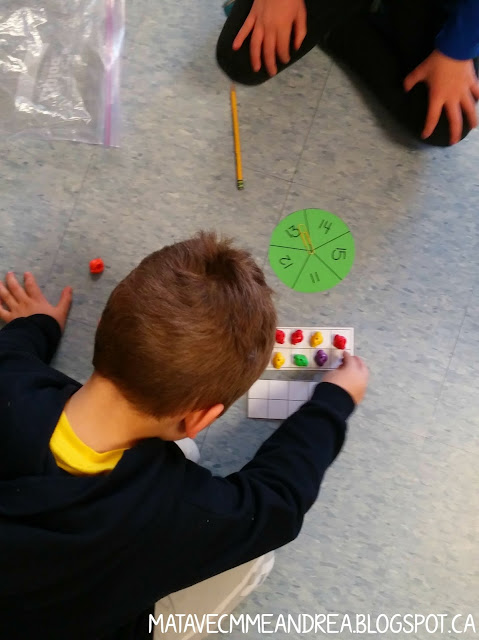 |
| Here are some of my students playing a game together that practices counting strategies |
We also love whole-group games, but don’t have as much time to play those. We usually play “Coccinelle” or “Pieuvre” if we have some spare time. “Coccinelle” is hangman, except you draw a ladybug instead ;) I like it because it helps them with their reading strategies – when we get a bunch of letters on the board, we can think about what might make sense. We play “Pieuvre” every time we learn a new sight word. It was one of those total on-the-spot games that I just came up with one morning when we had 5 extra minutes and I didn’t know what to do with them, ha! I like it because it gets them up and moving around, and is a fun way to help them learn new sight words. Here’s how to play!
Write your target sight word on the same number of small pieces of scrap paper as you have students (eg. I have 16 students, so I write « vois » 16 times on 16 different pieces of scrap paper).
Also add a couple of “tricky” words on some more scrap paper to try and trick your kids (voici, vous, mois, etc.). This forces them to really look closely at and think about the letters in the target word. You could also scramble the letters in your target word on a couple of pieces of paper.
Place all of the papers on the floor around your classroom, word-side up.
Start the music! Here is our current fav song:
This part is kinda like musical chairs. Students move around the room to the beat of the music. When the music stops, they have to sit on the target sight word as fast as they can. For the first round, I make sure to have enough words that everyone gets one.
After round 1, take a couple of the sight word cards away. Play the music again. This time, when the music stops, the students who don’t find the sight word become octopi ;) They sit on the floor criss cross applesauce and wave their arms. Their bums have to stay glued to the floor, but they can try and “tag” their classmates during the rest of the rounds. If a student gets tagged, they become an octopus too!
To avoid injury, I usually stop the game when we have 3-4 kids left haha. I don’t want to imagine what would happen if 3-4 kids were all trying to sit on the same word!
We spend lots of time, again, talking about how to be a good winner and a good loser. I think that it is an important skill for kids to learn, albeit a tricky one. And I find it is worth practicing all throughout the year – then, if you want to play Bingo or have Mini Olympics or something to celebrate something, your students are already good at understanding sometimes they may not win, and that’s okay!
Do you use games in your classroom? I hope so! In case you need a little help getting started, I have made you guys a little Freebie! Here is a FREE summer-themed version of EEK!, our favourite classroom game. This version just practices letter names and sounds, but you can find more in my store that practice sight words, too. Just print, laminate, and show your kids how to play! There is an “I Can” card in the download as well, which your students can use if they forget how to play – which makes it a great game for a centre! :)
You can find this game in the “Seasonal” section of my FREE French Resource Library. If you don’t have access yet, just CLICK HERE, fill in your info, click the button to sign up, and I will email you the password!
To see some of the other games currently in my store, check out the links below:
– EEK!
– Youpi!
– Roule et couvre
– Ours polaire perdu
– Bingo
EEK! and Youpi! have bundles, so if you are interested in using them all year long, you should definitely take a peek at the bundles – they can save you lots of $$.
Let me know in the comments which games your students love!

